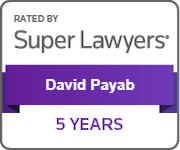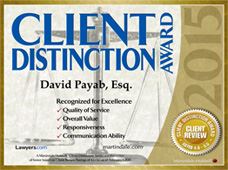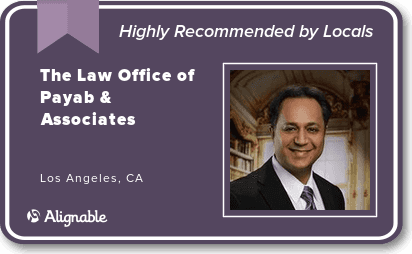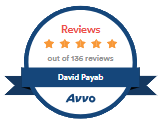Severance agreements are often presented during challenging times, so it's important to approach them with a clear understanding. These legally binding contracts can greatly impact your financial stability and future opportunities. By thoroughly reviewing the agreement and considering its implications, you can protect your rights and set yourself up for success. Here's what you need to know about severance agreements and how to ensure the terms are fair and equitable.
Understanding the Basics of Severance Agreements
Definition and Purpose of Severance Agreements
A severance agreement is a legally binding contract between employer and employee, outlining the terms of the employee's departure. It typically offers financial compensation or other benefits in exchange for waiving certain rights, such as the right to sue the company. For employers, these agreements reduce the risk of litigation and establish clear terms for separation. For employees, understanding the legal impact of signing such agreements is critical, as it may bar future claims or affect unemployment eligibility. Consulting an employment attorney can help ensure your rights and interests are fully protected.
Common Components of a Severance Agreement
Severance agreements include components such as severance pay, extended benefits, and binding clauses like confidentiality or non-compete terms. Severance pay often depends on tenure and role, while extended benefits, like health insurance, provide added financial security during unemployment. Common clauses may restrict disclosing company information or pursuing work with competitors. Employees should review these clauses for reasonableness and fairness. Working with a legal expert can help you identify and negotiate terms that are more aligned with your career goals.
Legal Framework Governing Severance Agreements
Federal laws like the OWBPA protect employees' rights during severance negotiations, particularly for those over 40. Meanwhile, state laws vary, with some states limiting overly broad non-compete clauses or offering additional safeguards. For instance, California law generally avoids overly restrictive measures that could unfairly affect employees' futures. Familiarity with these laws ensures agreements comply with legal standards. Seeking legal advice ensures the terms are fair and reflective of your rights under both state and federal guidelines.
Key Clauses to Examine Closely
Non-Compete and Non-Solicitation Clauses
Non-compete clauses restrict where and for whom an employee can work, while non-solicitation terms limit contacting former clients or colleagues. These conditions can impact the employee's ability to find work or maintain industry ties. Reviewing their scope and duration is vital to assess whether they are too restrictive. Employees can often negotiate to maintain their ability to pursue opportunities in their field. Consulting legal professionals can illuminate enforceability and provide leverage for adjustments.
Release of Claims and Waivers
A release of claims waives your right to sue your former employer for employment-related issues, such as discrimination or wrongful termination. While this benefits employers by reducing litigation risks, employees need to understand what rights they are forgoing. Careful review and legal consultation are essential to ensure the release is limited in scope and doesn't include unaddressed grievances. Legal experts can also help negotiate exclusions or fairer terms. Fully understanding this clause means fewer surprises and informed decisions.
Confidentiality and Non-Disparagement Clauses
Confidentiality and non-disparagement clauses often prohibit employees from sharing sensitive company details or making negative remarks. These clauses protect the employer but can restrict the employee’s ability to speak about their experience. Employees should evaluate these terms to clarify obligations and understand their enforceability. Negotiating reasonable terms is often possible to ensure they don't unfairly limit personal or professional freedoms. Legal guidance is highly beneficial in navigating these common clauses.
Financial Considerations and Negotiation Tips
Evaluating Severance Pay and Benefits
Severance pay and benefits are essential components that offer financial stability during the transition period. They are often calculated based on tenure or position, aiding employees during unemployment. Employees should evaluate whether the offer meets their financial needs and aligns with industry standards. Additional benefits, such as outplacement services, can also add value. Negotiating higher compensation or extended benefits is often possible, especially when backed by proper preparation and legal guidance.
Tax Implications of Severance Packages
Severance payments are taxed as supplemental wages, sometimes increasing an employee's tax bracket. Understanding how severance affects your tax liability ensures you can better manage your finances. Structuring payments across fiscal years or consulting a tax professional can reduce these burdens. Other components of the agreement, like benefits or stock options, also carry potential tax obligations. Taking the time to understand these implications helps you make strategic and informed financial decisions.
Strategies for Negotiating Better Terms
Successful severance negotiation begins with identifying areas of improvement, whether financial or contractual. Employees should clearly outline their value to the firm while highlighting legitimate reasons for amendments. Legal advisors offer key benefits by identifying enforceability issues or drafting counteroffers. Familiarity with your rights ensures confidence while advocating for adjustments. Ultimately, a calm, prepared approach can often result in a mutually beneficial agreement.
Legal and Professional Advice
When to Consult an Employment Lawyer
If you're uncertain about severance terms or identify problematic clauses, consulting with an employment lawyer is crucial. They provide clarity on legal language, point out red flags, and advise you on negotiation tactics. This is especially vital if company policies seem coercive or if you're waiving substantial rights. Instances like wrongful termination claims further emphasize the need for legal input. Getting professional advice equips you to move forward with a fair deal that preserves your rights and goals.
Role of Human Resources in Severance Negotiations
HR departments, often tasked with drafting severance agreements, serve as your primary point of contact for negotiations. While they represent the employer, they’re useful for clarifying terms and discussing modifications. Employees should engage HR professionally, come prepared, and communicate their priorities clearly. Building positive rapport can make negotiations smoother and more effective for all sides. It’s important to balance assertiveness with collaboration when addressing concerns.
Understanding Your Rights and Options
Employees have the right to thoroughly review a severance agreement and seek legal counsel before making decisions. Laws like the OWBPA and state-specific protections ensure fairness, especially when dealing with issues such as non-competes or discrimination claims. If pressured to sign quickly, employees can refuse until they feel adequately informed. Understanding available remedies, from renegotiation to legal challenges, puts employees in control. Being informed and prepared creates an empowered approach to navigating severance agreements.
Potential Pitfalls and Red Flags
Identifying Unfair or Unusual Terms
Unfair terms, such as overly broad non-competes or sweeping waivers, can limit an employee's career prospects. Severance agreements should align with industry norms and be reasonable in scope to avoid long-term repercussions. Identifying terms that seem overly restrictive or unusual often involves consulting legal advice. Fair agreements balance protection for employers while ensuring the employee can pursue opportunities freely. Careful scrutiny mitigates risks and prepares employees to negotiate modifications as needed.
Consequences of Signing Without Full Understanding
Signing an agreement without fully understanding its terms can have serious consequences, such as losing the ability to file legal claims or suffering career restrictions. Employees could unknowingly accept obligations that hinder both personal freedoms and professional progression. If you've signed prematurely, an attorney may help remedy or assess your options. Avoiding hasty decisions ensures you won’t face preventable challenges in the long run. Taking time for legal review results in confident, informed decisions.
Long-Term Implications of Severance Agreements
The effects of severance agreements often linger beyond the immediate financial relief. Clauses, such as confidentiality or non-compete terms, can limit career moves and future freedom. It’s critical to weigh these impacts against the offered benefits before committing. Employees should consult with legal advisors to fully grasp potential consequences. A forward-thinking analysis secures not only immediate relief but preserves your long-term objectives. Smart preparation minimizes future complications.
Woodland Hills Severance Agreement Attorneys
Navigating severance agreements can be complex, but expert legal guidance makes the process smoother and more secure. At The Law Office of Payab & Associates in Woodland Hills, CA, we specialize in employment law and will help you fully understand your rights while negotiating the most favorable terms. Don't leave your future to chance—our experienced attorneys are here to ensure your agreement works in your best interest. From evaluating clauses to advocating for better terms, we are committed to protecting your financial and professional well-being. Contact us today at (818) 918-5522 to schedule a consultation and take an essential step toward securing your future with confidence.

.2412191226210.jpg)































